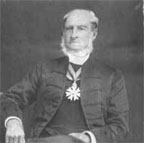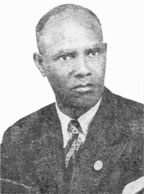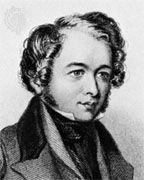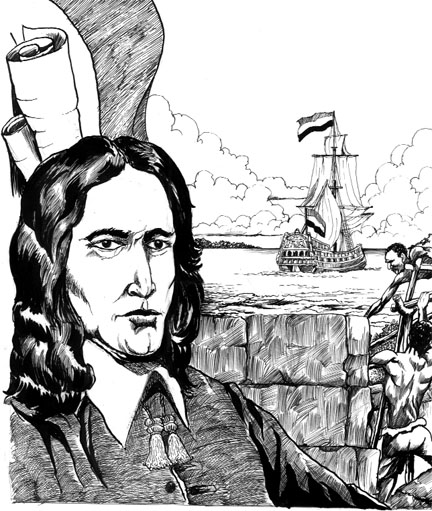History
By Vincent Roth
Kyk-Over-Al is one of this country’s oldest and most respected literary journals. Guyana Review reprints an essay by Vincent Roth that was first published in Kyk-Over-Al, Vol. 2, No. 7, December 1948.
It must be very nice to be the Editor of a magazine. When he wants an article on a particular subject, he simply chooses someone who he imagines has the necessary qualifications and, then with smiling countenance and honeyed words, he approaches his victim and explains to him how happy his readers would be if he would oblige, by the end of September at latest.

Just like approaching one of those ornate and noisy contraptions known as ‘juke-boxes,’ placing a coin in the slot, pushing a button and, presto, there’s the noise. Although I do not pretend to any of the physical, vocal or mental qualities of a juke-box, that was the impression I got when the editor of Kyk-over-al approached me some weeks ago, without the juke-box coin however, and suggested that I write an article on the Six Most Outstanding Men in the History of British Guiana.
There are in the pages of our history, both ancient and modern, many times six men of outstanding ability who, each in his own way, has left his mark on the history of the Colony. So, whatever six I choose, there will be readers who will not agree with my choice as a whole. Of this I am sure, for already I have tried my list out on some of my friends, not one of whom has seen eye to eye with me on my six. So, where angels fear to tread, I rush in. Here is my list.

The first place I give to Storm van ’s Gravesande, the doughty founder of the Colony of Demerary, the Dutch Commander-General of the Two Rivers who, with his headquarters at Fort Zeelandia (Fort Island), had the vision to see the possibilities of the smaller but deeper river to the east of the old colony of Essequibo. There is not the slightest doubt that to his encouragement, both private and official, was due the start and rapid development of the youngest of the three Guiana colonies to the position of first importance in the subsequently combined British Guiana. But for him, Demerara might possibly today be but another Mahaica, a small Mahaicony, a small settlement acting as a province of the principal area of the territory, Essequibo.
Next in order of merit I place Sir Robert Herman Schomburgk, famous German traveller and scientist who, first on behalf of the Royal Geographical Society and subsequently on behalf of her Majesty’s Government, explored and mapped the furthest recess of British Guiana between the years 1835 and 1844. It was mainly owing to Schomburgk’s work that British Guiana came off as well as it did in the subsequent arbitration proceedings with Venezuela and Brazil. He it was who literally and figuratively put British Guiana “on the map”.

Next I choose William Piercy Austin, the first Bishop, of Guiana, described by Queen Victoria as her youngest and handsomest bishop and by others as the Nestor of the Anglican Church. From the ecclesiastical point of view, he also put British Guiana on the map but his greatest claim to local fame was his exceptional humanness and spiritual qualities. It is recorded that at the consecration of St. George’s Cathedral when, just before his death he made his last appearance before his flock the congregation wept unashamedly.
My fourth choice is William Russell for his driving energy in developing the East, and founding the West, Demerara Water Conservancies without which there could have been no prosperity in the greatest and, at that time, only major industry − sugar growing.

My fifth choice is George Giglioli, M.D, because his work in this country as a malariologist is world-famous and for being the guiding hand behind the D.D.T. campaign, the full effects of which are not yet felt but which it is easy to see will revolutionise general economic conditions in British Guiana.
My sixth and last choice is Hubert Nathaniel Critchlow who has given the greater part of his life self-sacrificingly to introducing and encouraging trade unionism in this country, a task from which all classes of labour have benefitted to a degree undreamt of fifty years ago.
These, then, are the six men I personally would choose as having rendered the most outstanding service to the country. But, as I said in my opening remarks, I shall not be surprised to have my choice criticised.
British Guiana has of course benefitted greatly from the labours of other outstanding men such as Frederick Gardiner Rose in Leprosy; Patrick Dargan and A.R.F. Webber in political economy; William Beebe in zoology; Walter E. Roth in anthropology; James Rodway and Graham Cruickshank in history; Baron Siccama in hydraulic engineering; Cesar Romiti and John Grierson in surgery; Father Scoles and Castellani in architecture; Sir John Harrison in industrial chemistry and agriculture; Bishops Galton and Edward Parry in the humanities; De Saffon and Trotman in charity; Edwin McDavid in finance, and Sir Gordon Lethem in red-tapeless administration.
Those who do not agree with my choice will no doubt substitute some of these names as amongst the six most meritorious men who have served British Guiana.




